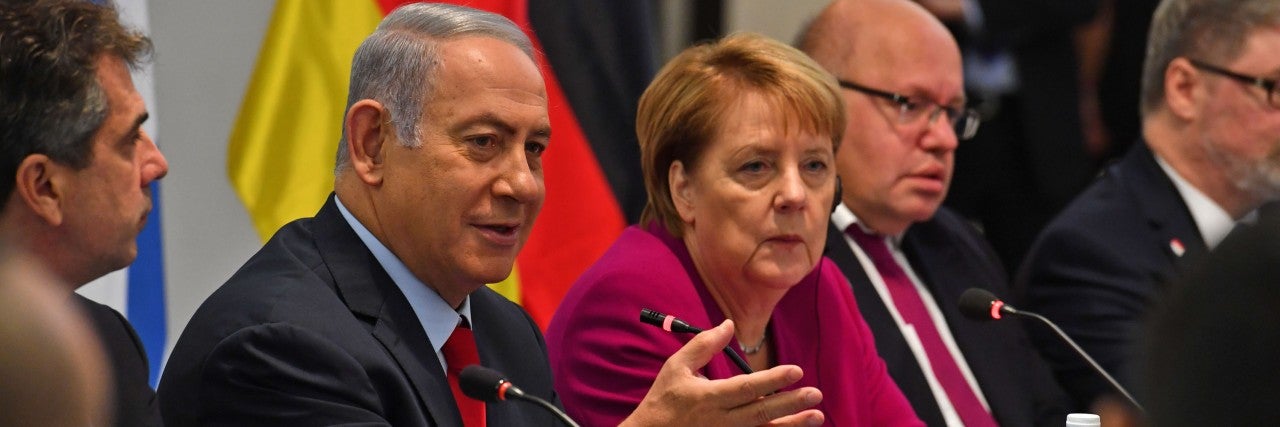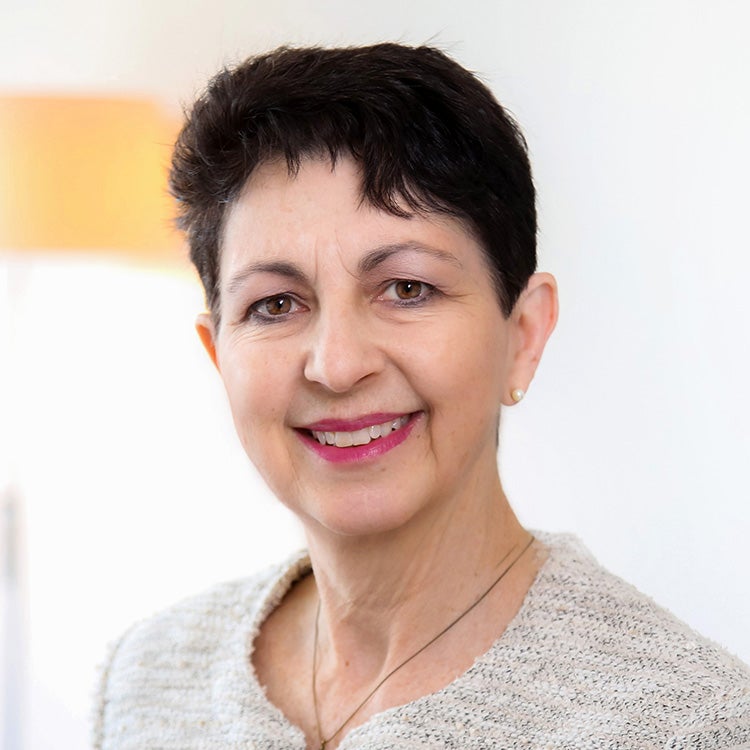October 5, 2018
After German Chancellor Angela Merkel’s latest visit to the Jewish state, AJC Jerusalem Director Lt. Col. (res.) Avital Leibovich and AJC Berlin Ramer Institute Director Deidre Berger, answered key questions about the relationship between the German leader and Israeli Prime Minister Netanyahu and what’s next for Germany-Israel ties.
1. What was the biggest takeaway from Israeli Prime Minister Netanyahu’s perspective?
Lt. Col. (res.) Avital Leibovich, AJC Jerusalem Director: Reflecting the importance that he ascribes to the Israel-Germany relationship, Prime Minister Netanyahu spent an extraordinary amount of time with Chancellor Merkel, including two very long private meetings, a business roundtable, and the bi-lateral ministerial meetings. While the German leader made headlines by declaring that she agreed with Netanyahu’s view that the Palestinians must recognize Israel as a Jewish state, Iran and its role as the world’s foremost state sponsor of terrorism was at the top of the Israeli leader’s agenda. Ever since the U.S. withdrew from the JCPOA (the Iran nuclear deal) Germany and other European nations have sought to save the agreement, and this is a point of contention with Israel, which has never supported the pact. Netanyahu stressed to Merkel the dangerous influence that Tehran continues to exert in Europe. Earlier this year, for example, Israeli intelligence services helped prevent a major Iran-sponsored terror attack in France. Merkel, however, appears more interested in the issues raised by Iran’s presence on Syrian soil.
2. What was the biggest takeaway from Chancellor Merkel’s perspective?
Deidre Berger, AJC Berlin Director: From the outset, Merkel sought to reset what in recent years has become a rocky relationship with Israel, and appears to have succeeded. Prior to her arrival, Merkel set the tone by speaking of Germany’s determination to fight antisemitism and re-emphasizing that ensuring the security of Israel was Staatsräson, a vital national interest of her country. The press conference featuring Netanyahu and Merkel was much more relaxed than previous such conferences, and diplomats remarked on a visibly stronger atmosphere of trust. While political differences remain, particularly on the issues of Iran and settlement policy, it was clear that the chemistry between the two leaders has improved.
3. How do Israelis view German-Israeli relations?
Leibovich: Chancellor Merkel further endeared herself to Israelis through emotional moments heavy with symbolism. During a visit to the Yad Vashem Holocaust Museum, she wrote in the visitors log that “80 years ago on Kristallnacht, the Jews in Germany suffered hate and violence, unknown to them. After this, a crime which fractured civilization began.” Today, there are approximately 180,000 Holocaust survivors living in Israel. Witnessing a German leader take responsibility for Nazi atrocities has a powerful meaning in the Jewish state. Another poignant moment occurred when Merkel spoke about the abducted Israelis, including Hadar Goldin, who was killed by Hamas terrorists in 2014 and whose body has yet to be returned to Israel. Merkel indicated her government was supporting efforts to pressure Hamas into returning the Israelis, including Goldin’s remains.
Watch Leah Goldin, the mother of Hadar, emphatically call on world leaders at the AJC Global Forum 2018 in Jerusalem to get Hamas to return her son’s remains.
4. What steps did the two leaders take to improve relations between their two countries?
Berger: Amid a troubling rise of antisemitism in Germany, Chancellor Merkel brought with her Felix Klein, the newly appointed Federal Commissioner for the Promotion of Jewish Life and the Fight Against Antisemitism. His inclusion signaled the degree of importance that the chancellor is giving to his position. Throughout the trip, a message was conveyed that Germany and Israel can work together even more than in the past on fighting antisemitism.
In addition, both Netanyahu and Merkel were clearly excited about the many new initiatives that were discussed during their meetings and during the ministerial consultations. There was a strong focus on exchange in the areas of technology and cyber security, where Germany has much to learn from Israel. A new youth exchange network was discussed that would increase significantly the number of young Germans and Israelis visiting each other’s country, along the lines of the highly successful French-German Alliance for Youth exchange program established in 1963. In addition, German-Israeli cooperation on development aid projects in Africa was expanded from six to nine countries.
Photo credit: Kobi Gideon (Israel GPO)




